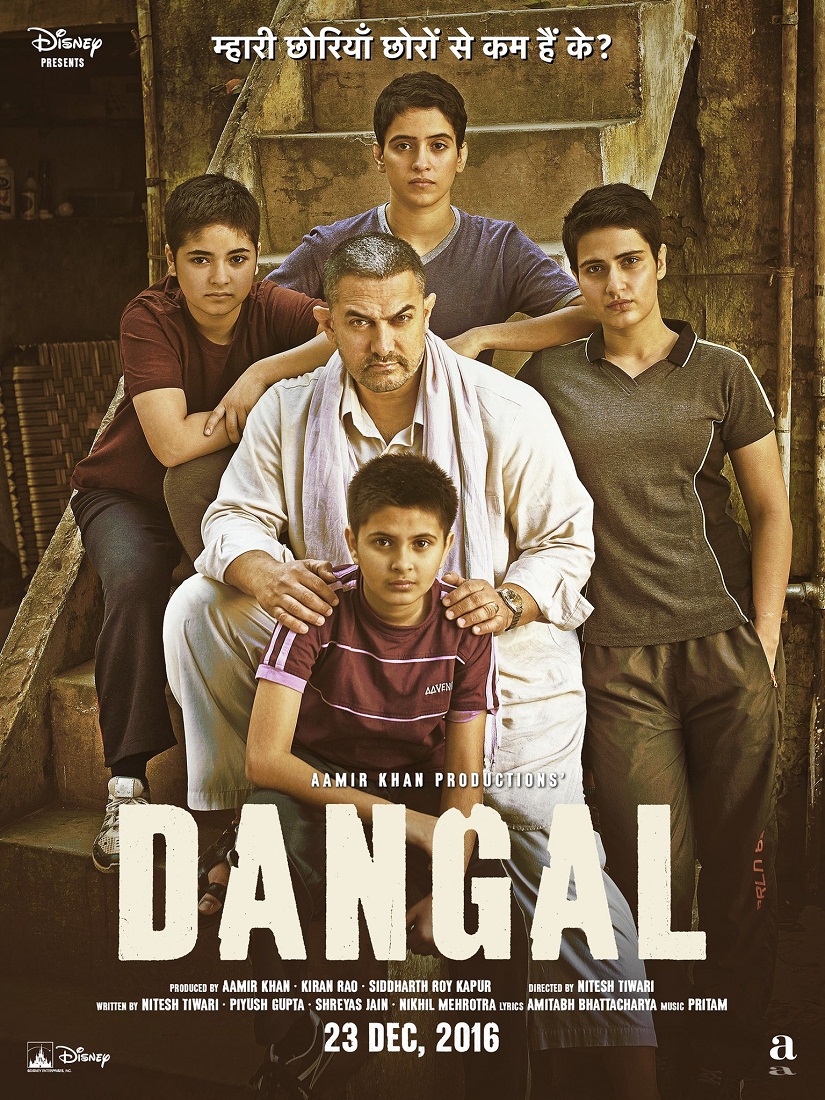Here’s the most remarkable thing about Aamir Khan. What was the last time that his movie didn’t do well at the box office? Do you remember? I think it was Mangal Pandey : The Rising in 2005. For more than a decade, he has consistently chosen off-beat topics and not just made them a success but has broken every possible record. He was the first to reach the 100 crore club with Ghazini and Dangal is the most successful Bollywood movies ever. One of the most difficult things in the world is to make people interested in your creation. No one knows what will work and what won’t. Even Aamir does not. But it’s his gut feeling about the right script that works so beautifully every time.
If I remember correctly, Aamir was the first of his generation of actors to do one film at a time, when his colleagues were working in double or triple shifts. There was a lot of criticism in the media on this decision especially because Aamir was not the superstar that he is now and this could have been a dangerous move for his career. He stuck to his intuition and the results are for everyone to see. Today it has become a norm with actors like Ranbir Kapoor doing one movie at a time.
One oft-occurring criticism of Aamir’s movies is that the usually positive message is too direct. This can be a turn-off for those who have had a wide variety of cinematic experiences and would prefer a more subtle approach. But there is another side to this.
Whenever I write about Indian cinema, I am acutely aware that for most part I am writing for the minority. If you are living in India, ask your grocer or household help about their favourite movie. Chances are the answer will be a commercial movie. As a bonus question, you can also ask them what they think of Bergman or Shyam Benegal. I am reminded of a dialogue from Richard Attenborough’s Gandhi, “My brothers, India is seven hundred thousand villages, not a few hundred lawyers in Delhi and Bombay.”
Dangal is based on a true story from Haryana, a state which probably has the worst record for women’s rights in India. Honour killings are common, male/female sex ratio is dismal and patriarchy exists to a degree which is unimaginable from the comfort of cities. Mahavir Singh Phogat is a national level wrestling champion and Dangal depicts his struggles while training his daughters for wresting. In doing so, Phogat demolishes taboos that have been ingrained into the Indian psyche for centuries. Imagine a father allowing his daughters to wrestle against boys because there are no female wrestlers available. How many well educated, liberal minded fathers would dare to do this? I try to imagine what must be going through the minds of members of Khap Panchayat as they watch Dangal, members who routinely order honour killings. So yes, if the message is a bit too direct, it’s certainly needed for this type of audience.
Dangal means wrestling in Haryanavi. Dangal has the technical perfection that is rare in Bollywood movies. The girls underwent training for a year before they were ready. No body doubles or CGI has been used in the action sequences. I especially liked the fact that the movie is in Haryanvi throughout. Many Bollywood movies show actors speaking the few initial lines in whatever culture the movie is supposed to be based in but few scenes later, it’s too much work for the writers and actors and they are back in the normal Bollywood Hindi.
It is not easy to take a neglected subject like women’s wrestling and make it a success. Previously, Chak De! India managed it with women’s Hockey. One of Shah Rukh Khan’s best roles in my opinion, where he successfully broke free of his romantic image. In Dangal, Aamir gives the best performance of the year. His transformation from a young boy with six-pack body to an old man with a belly is truly commendable. Equally delightful were the performances of Zaira Wasim and Suhani Bhatnagar as young Geeta and Babita. Their spontaneity makes it difficult to believe that this is their first performance.


